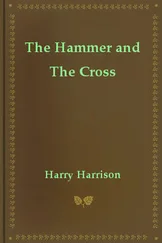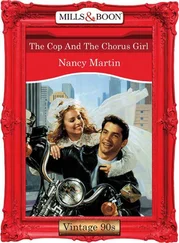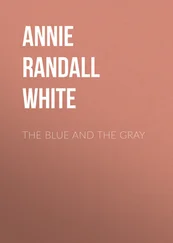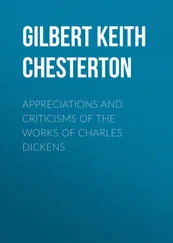Gilbert Chesterton - The Ball and the Cross
Здесь есть возможность читать онлайн «Gilbert Chesterton - The Ball and the Cross» весь текст электронной книги совершенно бесплатно (целиком полную версию без сокращений). В некоторых случаях можно слушать аудио, скачать через торрент в формате fb2 и присутствует краткое содержание. Жанр: Классическая проза, на английском языке. Описание произведения, (предисловие) а так же отзывы посетителей доступны на портале библиотеки ЛибКат.
- Название:The Ball and the Cross
- Автор:
- Жанр:
- Год:неизвестен
- ISBN:нет данных
- Рейтинг книги:5 / 5. Голосов: 1
-
Избранное:Добавить в избранное
- Отзывы:
-
Ваша оценка:
- 100
- 1
- 2
- 3
- 4
- 5
The Ball and the Cross: краткое содержание, описание и аннотация
Предлагаем к чтению аннотацию, описание, краткое содержание или предисловие (зависит от того, что написал сам автор книги «The Ball and the Cross»). Если вы не нашли необходимую информацию о книге — напишите в комментариях, мы постараемся отыскать её.
The Ball and the Cross — читать онлайн бесплатно полную книгу (весь текст) целиком
Ниже представлен текст книги, разбитый по страницам. Система сохранения места последней прочитанной страницы, позволяет с удобством читать онлайн бесплатно книгу «The Ball and the Cross», без необходимости каждый раз заново искать на чём Вы остановились. Поставьте закладку, и сможете в любой момент перейти на страницу, на которой закончили чтение.
Интервал:
Закладка:
Turnbull remained silent, and MacIan said to him, looking once more at the earth: “It staggers, Turnbull. It cannot stand by itself; you know it cannot. It has been the sorrow of your life. Turnbull, this garden is not a dream, but an apocalyptic fulfilment. This garden is the world gone mad.”
Turnbull did not move his head, and he had been listening all the time; yet, somehow, the other knew that for the first time he was listening seriously.
“The world has gone mad,” said MacIan, “and it has gone mad about Us. The world takes the trouble to make a big mistake about every little mistake made by the Church. That is why they have turned ten counties to a madhouse; that is why crowds of kindly people are poured into this filthy melting-pot. Now is the judgement of this world. The Prince of this World is judged, and he is judged exactly because he is judging. There is at last one simple solution to the quarrel between the ball and the cross–”
Turnbull for the first time started.
“The ball and–” he repeated.
“What is the matter with you?” asked MacIan.
“I had a dream,” said Turnbull, thickly and obscurely, “in which I saw the cross struck crooked and the ball secure–”
“I had a dream,” said MacIan, “in which I saw the cross erect and the ball invisible. They were both dreams from hell. There must be some round earth to plant the cross upon. But here is the awful difference–that the round world will not consent even to continue round. The astronomers are always telling us that it is shaped like an orange, or like an egg, or like a German sausage. They beat the old world about like a bladder and thump it into a thousand shapeless shapes. Turnbull, we cannot trust the ball to be always a ball; we cannot trust reason to be reasonable. In the end the great terrestrial globe will go quite lop-sided, and only the cross will stand upright.”
There was a long silence, and then Turnbull said, hesitatingly: “Has it occurred to you that since–since those two dreams, or whatever they were–”
“Well?” murmured MacIan.
“Since then,” went on Turnbull, in the same low voice, “since then we have never even looked for our swords.”
“You are right,” answered Evan almost inaudibly. “We have found something which we both hate more than we ever hated each other, and I think I know its name.”
Turnbull seemed to frown and flinch for a moment. “It does not much matter what you call it,” he said, “so long as you keep out of its way.”
The bushes broke and snapped abruptly behind them, and a very tall figure towered above Turnbull with an arrogant stoop and a projecting chin, a chin of which the shape showed queerly even in its shadow upon the path.
“You see that is not so easy,” said MacIan between his teeth.
They looked up into the eyes of the Master, but looked only for a moment. The eyes were full of a frozen and icy wrath, a kind of utterly heartless hatred. His voice was for the first time devoid of irony. There was no more sarcasm in it than there is in an iron club.
“You will be inside the building in three minutes,” he said, with pulverizing precision, “or you will be fired on by the artillery at all the windows. There is too much talking in this garden; we intend to close it. You will be accommodated indoors.”
“Ah!” said MacIan, with a long and satisfied sigh, “then I was right.”
And he turned his back and walked obediently towards the building. Turnbull seemed to canvass for a few minutes the notion of knocking the Master down, and then fell under the same almost fairy fatalism as his companion. In some strange way it did seem that the more smoothly they yielded, the more swiftly would events sweep on to some great collision.
XX. DIES IRAE
As they advanced towards the asylum they looked up at its rows on rows of windows, and understood the Master’s material threat. By means of that complex but concealed machinery which ran like a network of nerves over the whole fabric, there had been shot out under every window-ledge rows and rows of polished-steel cylinders, the cold miracles of modern gunnery. They commanded the whole garden and the whole country-side, and could have blown to pieces an army corps.
This silent declaration of war had evidently had its complete effect. As MacIan and Turnbull walked steadily but slowly towards the entrance hall of the institution, they could see that most, or at least many, of the patients had already gathered there as well as the staff of doctors and the whole regiment of keepers and assistants. But when they entered the lamp-lit hall, and the high iron door was clashed to and locked behind them, yet a new amazement leapt into their eyes, and the stalwart Turnbull almost fell. For he saw a sight which was indeed, as MacIan had said– either the Day of Judgement or a dream.
Within a few feet of him at one corner of the square of standing people stood the girl he had known in Jersey, Madeleine Durand. She looked straight at him with a steady smile which lit up the scene of darkness and unreason like the light of some honest fireside. Her square face and throat were thrown back, as her habit was, and there was something almost sleepy in the geniality of her eyes. He saw her first, and for a few seconds saw her only; then the outer edge of his eyesight took in all the other staring faces, and he saw all the faces he had ever seen for weeks and months past. There was the Tolstoyan in Jaeger flannel, with the yellow beard that went backward and the foolish nose and eyes that went forward, with the curiosity of a crank. He was talking eagerly to Mr. Gordon, the corpulent Jew shopkeeper whom they had once gagged in his own shop. There was the tipsy old Hertfordshire rustic; he was talking energetically to himself. There was not only Mr. Vane the magistrate, but the clerk of Mr. Vane, the magistrate. There was not only Miss Drake of the motor-car, but also Miss Drake’s chauffeur. Nothing wild or unfamiliar could have produced upon Turnbull such a nightmare impression as that ring of familiar faces. Yet he had one intellectual shock which was greater than all the others. He stepped impulsively forward towards Madeleine, and then wavered with a kind of wild humility. As he did so he caught sight of another square face behind Madeleine’s, a face with long grey whiskers and an austere stare. It was old Durand, the girls’ father; and when Turnbull saw him he saw the last and worst marvel of that monstrous night. He remembered Durand; he remembered his monotonous, everlasting lucidity, his stupefyingly sensible views of everything, his colossal contentment with truisms merely because they were true. “Confound it all!” cried Turnbull to himself, “if he is in the asylum, there can’t be anyone outside.” He drew nearer to Madeleine, but still doubtfully and all the more so because she still smiled at him. MacIan had already gone across to Beatrice with an air of fright.
Then all these bewildered but partly amicable recognitions were cloven by a cruel voice which always made all human blood turn bitter. The Master was standing in the middle of the room surveying the scene like a great artist looking at a completed picture. Handsome as he looked, they had never seen so clearly what was really hateful in his face; and even then they could only express it by saying that the arched brows and the long emphatic chin gave it always a look of being lit from below, like the face of some infernal actor.
“This is indeed a cosy party,” he said, with glittering eyes.
The Master evidently meant to say more, but before he could say anything M. Durand had stepped right up to him and was speaking.
He was speaking exactly as a French bourgeois speaks to the manager of a restaurant. That is, he spoke with rattling and breathless rapidity, but with no incoherence, and therefore with no emotion. It was a steady, monotonous vivacity, which came not seemingly from passion, but merely from the reason having been sent off at a gallop. He was saying something like this:
Читать дальшеИнтервал:
Закладка:
Похожие книги на «The Ball and the Cross»
Представляем Вашему вниманию похожие книги на «The Ball and the Cross» списком для выбора. Мы отобрали схожую по названию и смыслу литературу в надежде предоставить читателям больше вариантов отыскать новые, интересные, ещё непрочитанные произведения.
Обсуждение, отзывы о книге «The Ball and the Cross» и просто собственные мнения читателей. Оставьте ваши комментарии, напишите, что Вы думаете о произведении, его смысле или главных героях. Укажите что конкретно понравилось, а что нет, и почему Вы так считаете.









